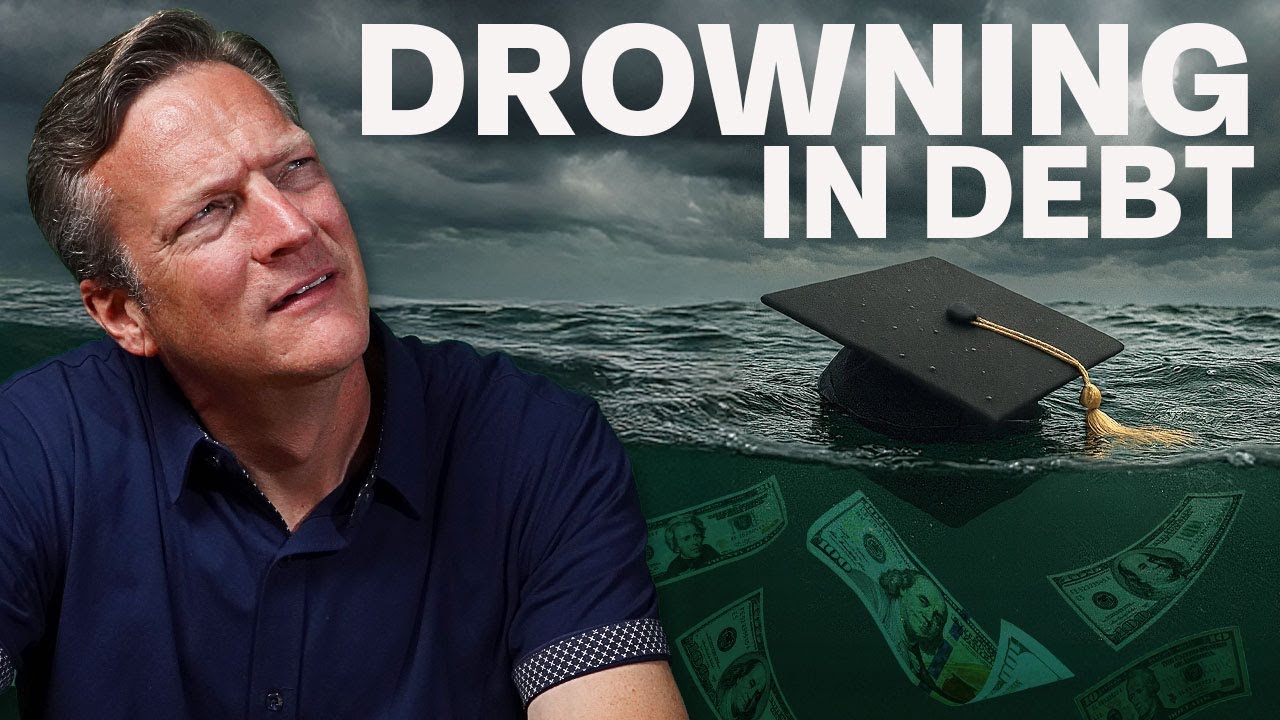But I do think it is very beneficial for all my financial mutants to see, compare, and contrast some of the controversial takes that Dave has. And I’ll go ahead and tell you, I can’t wait so you guys get to find out if we’re Pharisees or not. Oh, look at that. All right, let’s check out this first video. Here we go.
Hey, Dave, thanks for taking the call. I have another “should we pay off the house early out of our retirement” question for you. Why is this one different? Dave thought that was funny, tickled himself. Well, my wife and I are both retired, I’m 61, she’s 58. We retired with the mortgage. I’ve got a number of differing opinions from our financial guy. I’ve got friends that work in the finance industry. I guess just looking for another opinion, maybe one with a little bit more credence than some of the others, I guess.
Okay, so how much do you own in your home? It’s a $450,000 house; we owe $170. How much is your net worth? What do you have in your nest egg? Net worth is about a million and a quarter. We’ve got just over a million of that in investments and retirement. If your house was paid off, why would you go borrow on it? We would not. Then what’s the difference? Okay, let me rephrase the question. Maybe a better question is, if we decide to do this, is it a process over multiple years to ease a tax burden, or do we just bite the bullet? That’s a good question. Take the hit and do it once, or how would I do it?
I’ve been doing this 30 years. I’ve never had anybody call me back and say they were pissed off because they paid off their house. Oh, Dave, I mean, there’s just no downside to this. So one shot or would you? I’d write a check today. I’d be debt-free. I’d have been debt-free yesterday. Can you write a check on retirement? Listen to all these idiots. There’s a lot of idiots out there running around with an opinion about your money, and you’re a millionaire. Well, okay. So yeah, so right there, for those of you who maybe missed it, this is a retired couple, 61 and 58. They are retired; they have a little over a million-dollar portfolio, and they owe $117,000 on their mortgage. They’re asking the question, “Hey, should I just pay off the mortgage, pull it out of our retirement account, pay it off, or should I do some other strategy?” And Dave says unequivocally, “Doesn’t matter, no, pay it off right now, today, pay it off yesterday.”
Look, two wrongs do not make a right. I want to give respect to Dave and the fact that he and I agree on the fact that I think when you go into retirement, I want you to be completely debt-free. This person crossed into retirement still carrying a mortgage, so that’s less than ideal. I completely agree with Dave on that. However, now if this person came to me and says, “Hey, I’m in retirement; I have a seven-figure investment portfolio, but I also still have this $170,000 mortgage,” I have to triage them as they are, not as how they should have been. Because I would have told them if they’d come to me pre-retirement, “Hey, maybe you need to work an extra year, maybe you need to work an extra two years to get that mortgage completely paid off.”
But coming to me now, I have to give them the best answer for all the variables. And I’ll be honest with you, BR, I don’t know that we have all the information, but I can definitely tell you I don’t agree with everything Dave said there.
Well, I think what I really struggle with is Dave immediately jumped to an answer, and I feel like there’s a ton of information that he did not have. There’s a ton of questions that were not answered. Like, here’s a real easy one. Okay, he says, “Over a million bucks in an investment portfolio.” What types of accounts are those? Is one Aon matter? How about this, what are living expenses? How much do they need to live the life that they want and need, and what are their income sources that are paying for that? Is it their portfolio that’s providing for their living expenses, or do they have other stuff coming in? And then what about this one, and I think this one Dave, he’d want to fight me if he were here, but what’s the interest rate on that mortgage?
Maybe this mortgage is at a super, super low-interest rate. And so, does it make sense to take that $170,000 potentially out of a tax-favored account and satisfy a super low-interest mortgage at this stage? I just feel like he jumped to a conclusion without really diving into the details to know what the best answer would have been. And definitely, in this moment in time where interest rates are super high, mortgage rates are around 8%, if this person comes to you and they have a mortgage sub-4%, sub-3%, ’cause check out this data, 62% of homeowners have mortgages that are rates below 4%. 24% have rates below 3%.
If you think about the fact that he’s got a million dollars working for him and we’re thinking about how do you give him his best retirement, I don’t know if he’s got a 2 and a half percent mortgage, if I’m loving him, yanking that out, especially if it’s in retirement accounts because there’s going to be income taxes; there’s going to be all other things that create friction and other costs with getting access to that money. And what we think is awesome is we love having the goal of being debt-free. But most folks have the goal of making it through retirement, making it through financial independence without running out of money. And I don’t feel like Dave dove deep enough into that to make sure that that was sound advice because draining your retirement accounts to pay off your mortgage might not be smart because the mathematics might not substantiate it.
If you have a million portfolios and you are pulling off of that at a sustainable withdrawal rate to pay for your living expenses, and then you take 20% of that amount and go pay off the mortgage, well, now the amount that you pull off your portfolio either needs to decrease or you have a super high withdrawal rate, which could be detrimental over the long term. I feel like we’re sacrificing a future goal potentially to satisfy a very short-term goal today. That is a great way of putting it because here’s where I think things are. Dave gave them a permanent solution to something that is, I think, a temporary problem. And that is something that gives me a lot of pause because I think that if I was in Dave’s shoes and sitting at that desk, I would have said, “This is a mistake. You went into retirement with debt. What sacrifice are you going to make, and we have to figure out, is this a two-year problem, is this a three-year problem, is this a 5-year problem that you’re going to be on your p’s and q’s with your living expenses, and you’re going to extinguish this debt as fast as possible?” That is the way I would work through it after getting additional variables because we need to know account structure; we need to know interest rate. We just don’t have enough. But I definitely wouldn’t have said, “Hey, just knee-jerk pay this off,” potentially jeopardizing the health and wealth of his retirement. You’re saying there’s a difference in the get wealthy behaviors, right? Like getting debt-free and paying off debt would be like a getting wealthy behavior. But understanding your current financial circumstance and where you’re at today and what decisions make the most sense for your present circumstance is more of a stay-wealthy behavior. And it seems like Dave completely and totally ignored that.
Yeah, I would hope that this individual measures twice, cuts once because that was just too quick of an answer from Dave. For more information, check out our free resources.













